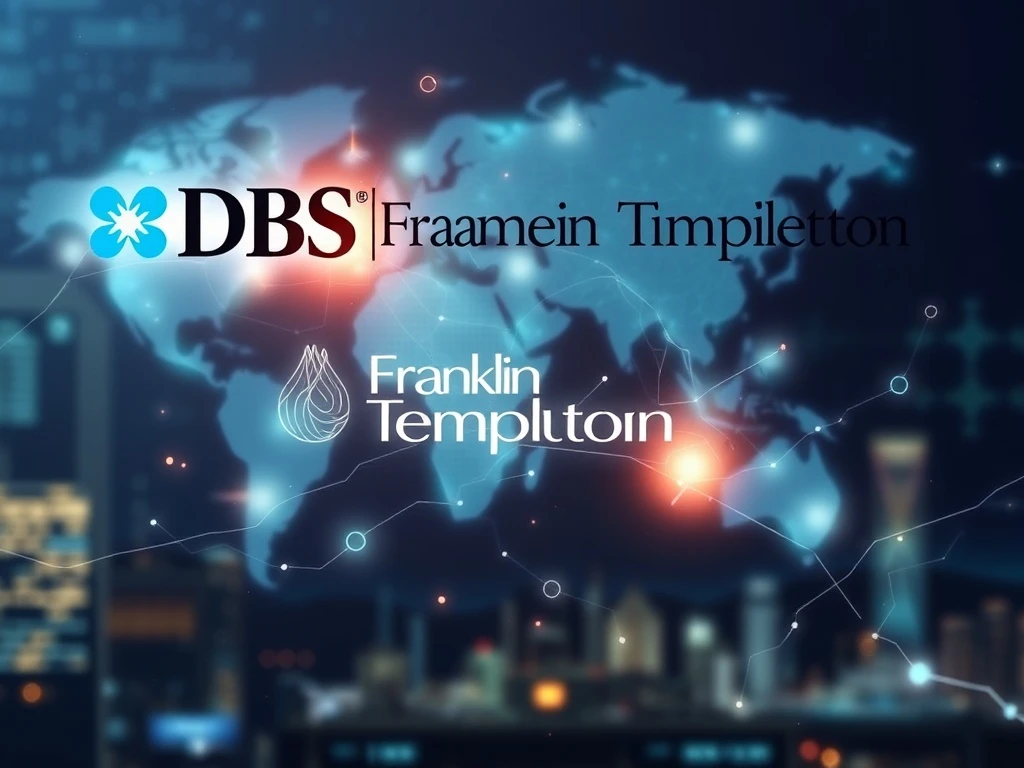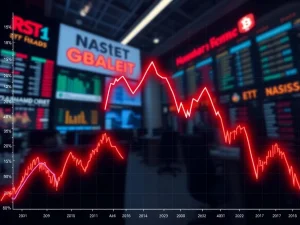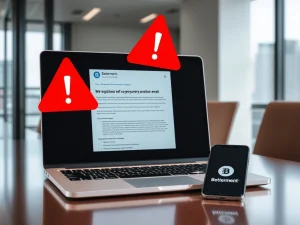Tokenized Lending: DBS, Franklin Templeton, Ripple Forge a Revolutionary Partnership for Institutional Finance

A monumental shift is underway in institutional finance. DBS, Franklin Templeton, and Ripple have announced a groundbreaking collaboration. This partnership aims to revolutionize tokenized lending and trading. It targets institutional investors specifically. The initiative leverages the power of the XRP Ledger. Consequently, it promises to enhance market efficiency and liquidity significantly.
Unlocking Institutional Opportunities Through the DBS Ripple Partnership
This significant collaboration brings together major players. DBS, a leading financial services group, joins forces with Franklin Templeton, a global investment manager. Ripple, a prominent blockchain and crypto solutions provider, completes the trio. They aim to deliver robust tokenized lending and trading solutions. These services will operate on the efficient XRP Ledger. The primary goal is to attract institutional investors. Furthermore, the partnership will offer tokenized money market funds and stablecoins. These tools help investors manage market volatility more effectively. A memorandum of understanding (MOU) solidifies this alliance. Lim Wee Kian, CEO of DBS Digital Exchange, highlighted the importance. He stated, “Digital asset investors need solutions that can meet the unique demands of a borderless 24/7 asset class.” Kian added that tokenized securities play this role by injecting greater efficiency and liquidity into global financial markets.
Franklin Templeton Tokenization Powers New Financial Products
At the core of this initiative is sgBENJI. This is a tokenized version of Franklin Templeton’s US Dollar Short-Term Money Market Fund. Franklin Templeton tokenization efforts are pivotal here. Franklin Templeton issues sgBENJI directly on the XRP Ledger. Furthermore, Ripple USD (RLUSD) will also be available. Clients can seamlessly trade between RLUSD and sgBENJI at any time. This capability allows for rapid portfolio adjustments. It also helps investors earn yield even during uncertain market conditions. Ultimately, this integration enhances financial agility and responsiveness for institutions. It provides a secure and efficient way to shift funds between stablecoins and yield-generating assets.

DBS Pioneers Collateralized Lending on XRP Ledger Institutional Framework
DBS plans to advance this offering significantly. In a subsequent phase, clients can use sgBENJI as collateral. This will unlock new credit opportunities. For instance, they can secure repurchase agreements directly with the bank. Alternatively, they can access third-party lending platforms. DBS will function as the trusted collateral agent. The XRP Ledger was chosen for its distinct advantages. It offers low transaction fees. Moreover, it ensures high-speed settlement. Nigel Khakoo from Ripple called this effort a “game-changer.” He noted the seamless movement between a stablecoin and a tokenized fund. This occurs within a “single, trusted ecosystem.” This unlocks real-world capital efficiency, utility, and liquidity that institutions demand. Therefore, the XRP Ledger institutional capabilities are proving instrumental in this groundbreaking venture.
The Rise of Real-World Asset Tokenization
This collaboration aligns with a broader trend. Institutional demand for regulated on-chain products is surging. A recent Coinbase and EY-Parthenon survey supports this. It found 87% of institutional investors expect digital asset allocation by 2025. Consequently, real-world asset tokenization is gaining immense traction. RWAs convert tangible or intangible assets into digital tokens. These tokens reside on a blockchain. This process unlocks new liquidity and accessibility. The market for RWA tokens recently peaked at $29 billion. This highlights robust growth and investor interest. The partnership between DBS, Franklin Templeton, and Ripple exemplifies this growing confidence. It demonstrates the practical application of tokenized assets in traditional finance.
Driving Efficiency in Cross-Border Settlements
Beyond tokenized lending, this initiative impacts cross-border settlements. Tokenized assets are transforming global capital markets. SBI Shinsei Bank, for example, explores multicurrency tokenized deposits. They partnered with Singapore’s Partior and Japan’s DeCurret DCP. Their goal is a blockchain-based framework. This enables real-time clearing across various currencies. Ultimately, they aim for a 24/7 global settlement network. This reduces reliance on traditional correspondent banking. Such advancements inject greater efficiency and liquidity. Global financial markets benefit significantly from these innovations. This trend underscores the broader utility of blockchain technology in finance. It moves beyond simple cryptocurrency trading to fundamental infrastructure improvements.
The Future of Institutional Digital Finance
The partnership between DBS, Franklin Templeton, and Ripple marks a pivotal moment. It signifies growing institutional confidence in digital assets. They are pioneering new pathways for finance. This collaboration leverages blockchain technology effectively. It promises enhanced efficiency, liquidity, and transparency. As a result, the future of institutional tokenized lending appears brighter than ever. This initiative truly sets a new standard for the industry. It demonstrates how traditional finance can seamlessly integrate with decentralized technologies. Ultimately, this paves the way for a more interconnected and efficient global financial ecosystem.









